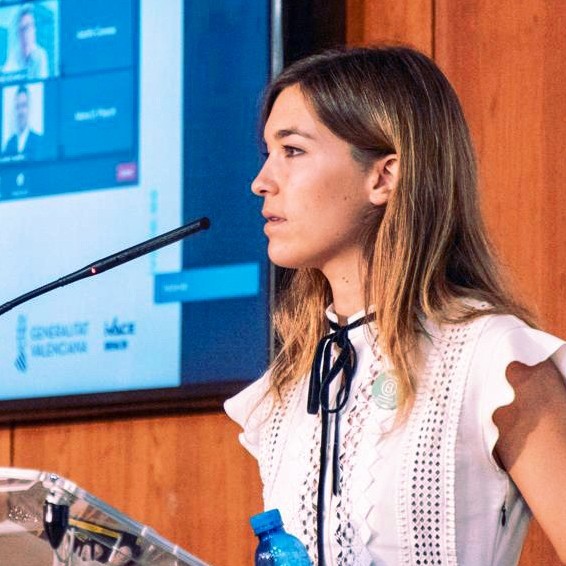Evolving B Corp Standards: reflecting on the direction of the movement

In December 2020, B Lab announced a review of the standards for the B Corp Certification. The aim was to understand whether more specific and mandatory performance requirements on key topics could ensure that B Corp Certification continues to effectively differentiate leading businesses and help all companies improve their impact. After two years of development and stakeholder engagement, B Lab has shared a draft of the new standards for review and input by all interested parties from September 26th to November 30th.
The new standards are a natural evolution of what it means to be a B Corp, making certification more relevant than ever before for the challenges we face today and tomorrow.
B Lab Europe and B Lab UK co-hosted a session open to the public to explore the evolution of Standards for B Corp Certification. More than simply providing an overview of the standards development process to date, the session focused on accelerating business action on key topics, the need for holistic impact management and the importance of collective action.
The event had various audiences: from B Corps and companies about to become B Corps to companies interested in the movement and curious and motivated individuals. Over 30% of participants were from outside the community, demonstrating how the interest in shaping the B Corp Standards goes beyond the community itself. B Lab has opened the consultation to any individual or organisation, giving the public the opportunity to shape a new era of constructive mechanisms that help achieve the systems change that we urgently need.
Neila Benamara, Head of Programmes at B Lab Europe, kicked off the webinar by introducing the growing momentum around business sustainability, ranging from structural changes happening at the legal level, such as the European Commission with a Green New Deal, and the public consensus to hold business accountable for their social and environmental impact.
The participants had the opportunity to hear directly from those who put pen to paper the draft of the new standards: the B Lab’s Standards Management Team. Bernard Gouw, Senior Manager, Social Standards at B Lab Global, explained why the evolution of standards is essential and how the three pillars of Impact, Clarity, and Responsiveness guided this process. Then he focused on the new draft standards, highlighting the key changes, the ten non-negotiable topics, and some FAQs.
You can read the full draft of the new Standards for the B Corp Certification here in English, Portuguese and Spanish.
“Evolution is in our DNA. If we look externally, the world is changing and so must we. There is an opportunity here to ensure we continue representing leadership and that we remain relevant for this changing world.”
– Bernard Gouw, Senior Manager, Social Standards at B Lab Global
During the Q&A, attendees had the opportunity to ask questions with live answers from the Standards Management Team. For example:
- What will happen for the companies that will be processing the current BIA while the modification of the BIA will happen?
- Will the 80+ score not exist anymore?
- Do you see a risk that existing B Corps might not fulfill the new requirements?
You can see the full list of Q&As of the session here.
In the second part of the webinar, a group of panelists joined a fireside chat discussing the impact we hope these changes will have on the business community and the world, moderated by Maria Correa, Head of Communications and Community Engagement.
Chris Turner, Executive Director at B Lab UK, addressed why it’s critical for the movement to continuously evolve the B Corp standards to meet the urgency of our times and listen to stakeholder feedback to maintain credibility. His answer to this question is rooted in all the different roles that B Lab plays.

“We cannot evolve that foundational part of what we do, the standards and the certification, without bringing the movement into that process. This is because we need to work on it together, but it’s also because the kind of leadership that is going to pave the way towards systems change is increasingly within our community”
– Chris Turner, Executive Director at B Lab UK
Since they were created, the standards have continually been reviewed and updated, but now there is a fundamental shift from the current system to the ten minimum requirements. Chris sees it as a reflection of the world around us, but most importantly as a consequence of raising the expectations of what kind of role business should play.
Thomas Van Craen, Managing Director at Triodos Bank – B Corp and pioneering company that has experienced the movement grow and evolve over the years – shared with the audience what this step signifies for them and the broader B Corp community. According to Thomas, introducing non-negotiables is important to identify leaders in the movement. He also acknowledged the tremendous effort that went into simplifying the operational weight of going through the certification while building bridges with other credible certifications, standards and legislation that exist today.

“[The evolution of Standards] is a testimony to the fact that B Lab and the B Corp certification is really building on the strength of the community that it creates, that it is listening to this and that is sensing what is happening in the world and has taken on the Herculean challenge of reviewing the Standards”
– Thomas Van Craen, Managing Director at Triodos Bank
After looking at the big picture, Carlota de Paula Coelho, Senior Sustainability Consultant at MAS Business and Member of the Technical Expert Group on EU Sustainability Reporting Standards (EFRAG TEG), explained how the evolution of B Corp Standards fit in with the new regulations being proposed by the European Union. According to Carlota, looking at the new B Corp Standards and completing the B Impact Assessment is a formidable exercise of preparation for the regulation that is about to come from Brussels.

“If we look at the European Sustainability Reporting Standards, stakeholders are the same; objectives are the same; we are not reinventing the wheel. The new B Corp Standards fit very well and, in all cases, our mission as B Corps was always to go above and beyond compliance”
– Carlota de Paula Coelho, Senior Sustainability Consultant at MAS Business and Member of the EFRAG TEG
Beyond evolving standards, B Lab is actively advocating embedding stakeholder governance into how businesses operate, both at the European level with the Interdependence Coalition and UK level with the Better Business Act.
We hope that these different perspectives and FAQs help engage others from around the world to share their input on our new standards. The deadline to share your feedback during the first round of open consultation on the new B Corp Standards has been extended until the 30th of November. As stated in the consultation, we do not expect every company to share feedback on all of it. We encourage you to consider thoughtfully just a handful of topics that resonate most with you and answer the overarching questions. Aim for depth over breadth and for quality over quantity in your commentary.
Resources
